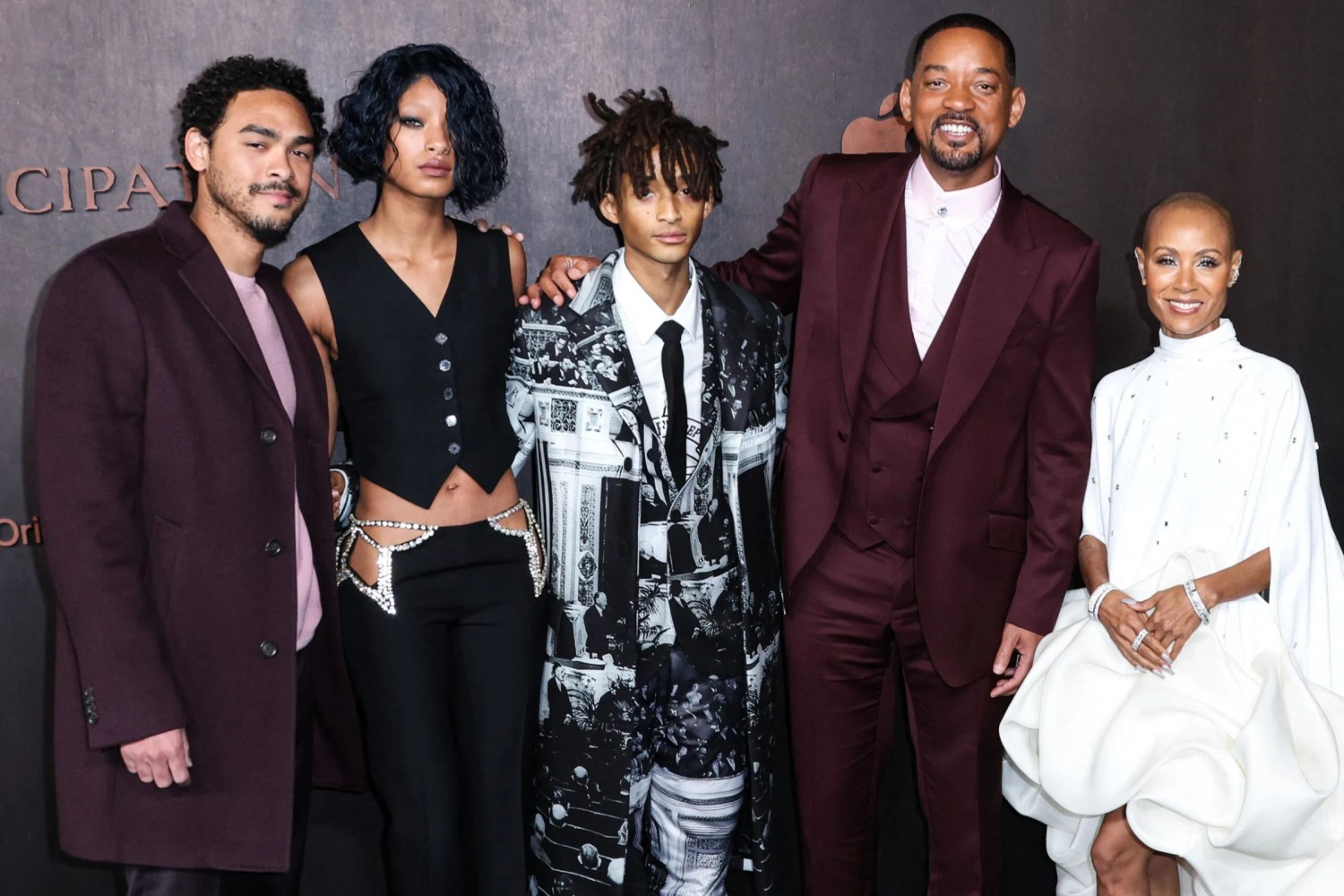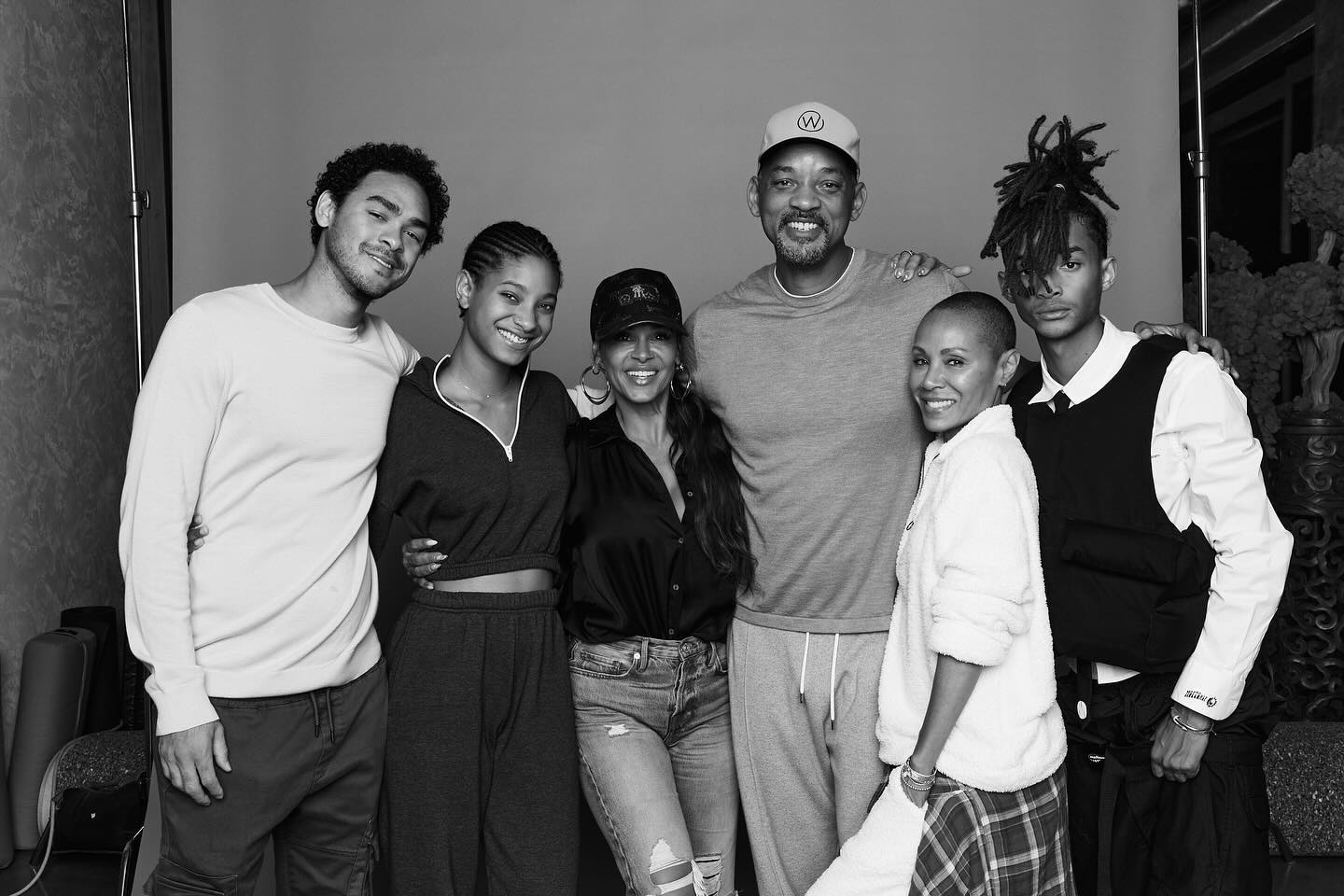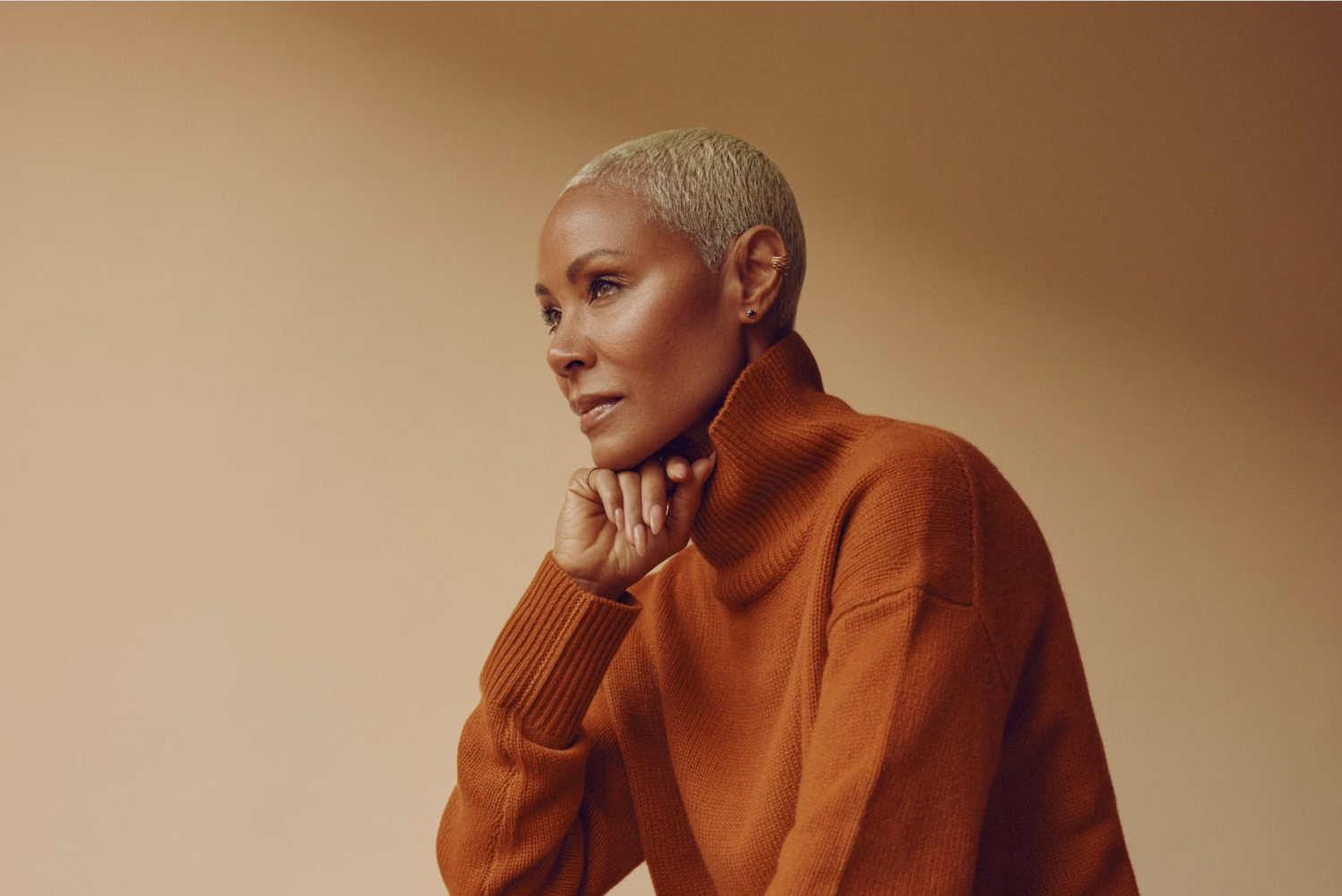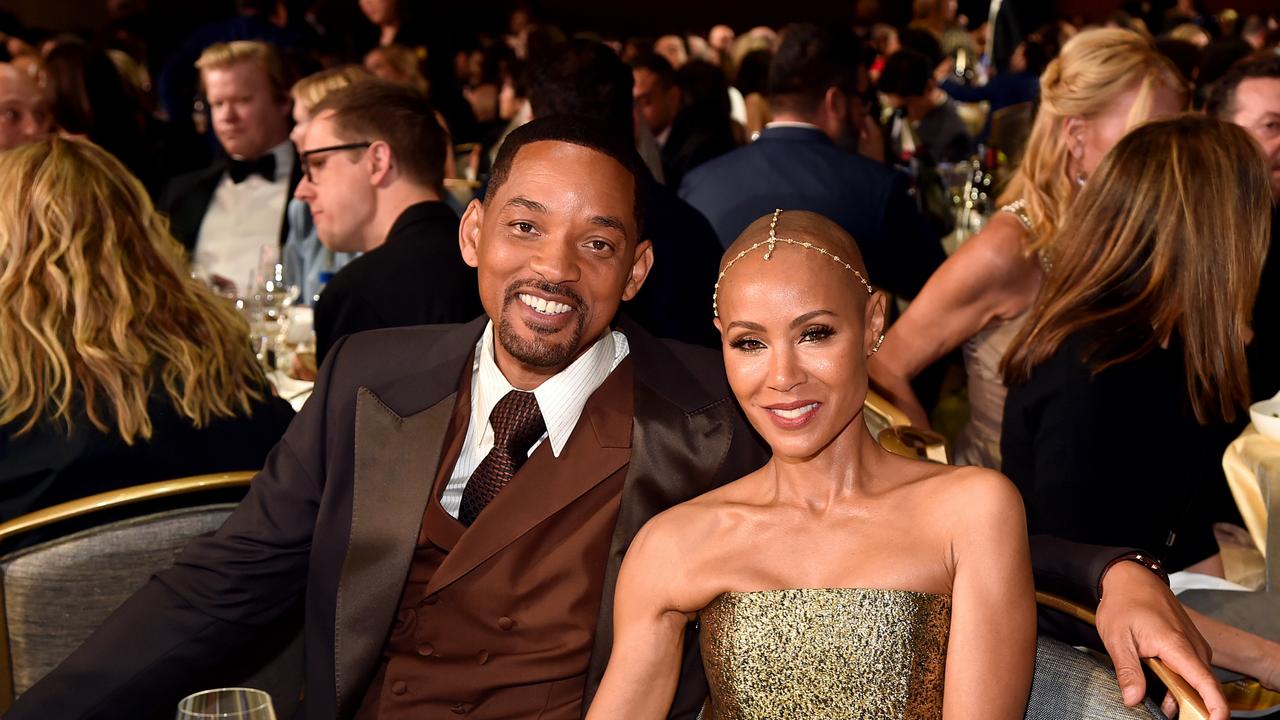This article is more than
1 year oldJada Pinkett Smith Explains Why What We Saw on ‘Red Table Talk’ Wasn’t the Whole Story — and Why She’s Bringing the Show Back
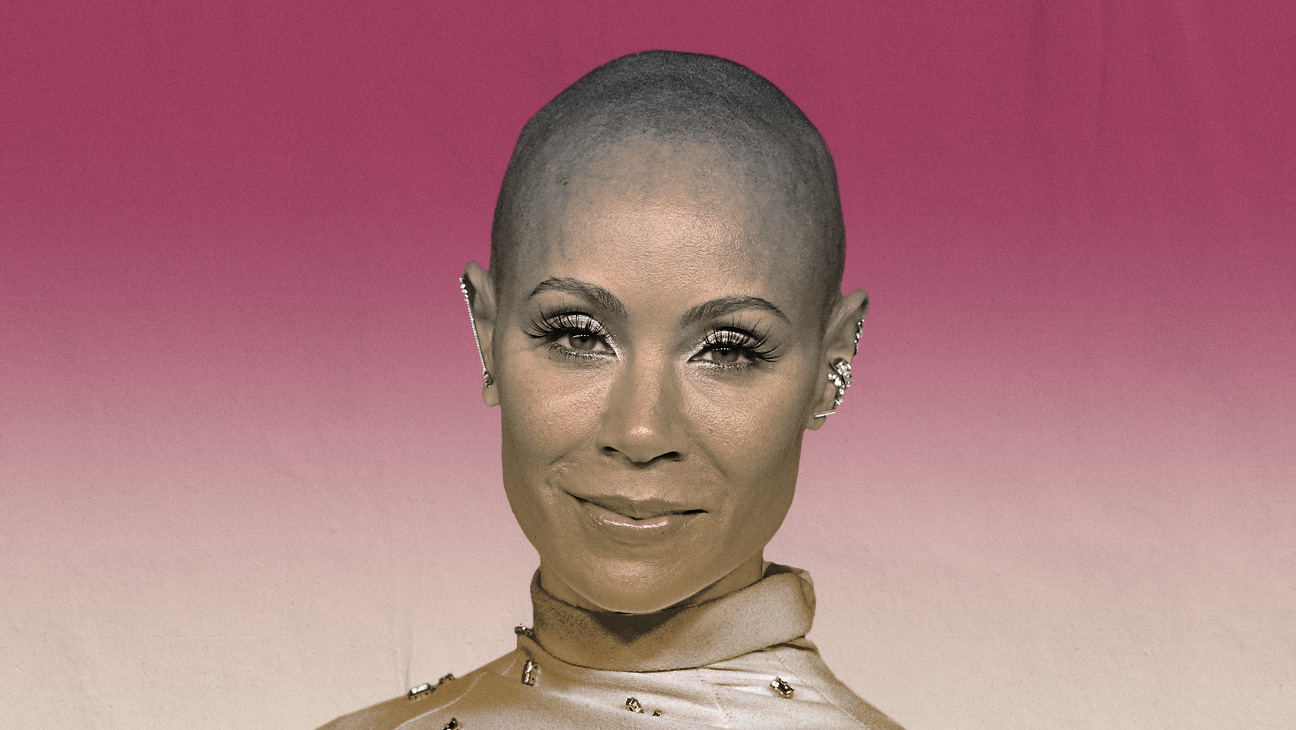
|
Jada Pinkett Smith is nervous about the release of her new book Worthy, but not for the reason one might think. “People are like, ‘Oh my God, are you concerned about your life just being out there?’ and I’m like, ‘No, it’s been enough craziness out there,’” she says laughing. “That part, I’m not concerned about.” What does give her pause is the idea of reliving the painful aspects of her life that she describes in great detail within the pages of the book. Noting that Worthy isn’t meant to be an all-encompassing memoir, she adds, “It wasn’t like I decided to write a book about my life, I’m writing about a certain aspect of my life, from feeling unworthy to worthy. So now I’m going in the stuff. Every single chapter is going in the stuff, and all of it was really sticky.” That same adjective is one used to describe ayahuasca, a tea derived from a plant in the Amazon, the psychoactive properties of which Pinkett Smith credits for her coming into her worthiness. Making the trip to Ojai to try the brew for the first time in January of 2012 was a last-ditch effort by Pinkett Smith at finding the will to live after mulling over suicide just three months prior, which is where her book begins. What follows is the actress’ journey from Baltimore to the bright lights of Los Angeles, and the dark aspects of the momentous occasions that define our lives, from moving out of our childhood home to motherhood and marriage. In between each chapter are prompts to guide the reader along their own personal journey of introspection as they delve deeper into hers. “I really wanted to tie in the Red Table Talk component, where it’s like we’re having this intimate conversation, and then you get to the end of the chapter, and it’s like, all right, let’s look at this. Let’s do some work together,” says Pinkett Smith.“I didn’t want to just lay the journey on people in a way of, ‘Here’s what I went through,’ without going, “And, hey, this is also how I got through a lot of this,” she adds. “If it can help you get through a challenging moment or a sticky point that you might be in, great, because that’s what we’re here to do for each other, help each other through this thing called life.” |

| When did you decide to write this book, and why is now the right time to release it? I decided to write the book because I had been asked to write a memoir for a while and I just didn’t see the reason. And then I realized, oh, this journey I’ve been on from unworthy to worthy, that would be a reason to write a book, to take a really, really, really deep dive into what that journey has looked like. I think so many people think that they know my story because of the Red Table, and that’s not true. It just wasn’t the proper platform to really be able to give the context and history that was needed to give people the understanding around my journey. Like all books, with writing you have the time to explain and really explore those journeys that are behind the curtain. So, I felt like that was a worthy purpose for a memoir. How did you settle on Worthy as the title, and when would you say that was a word that truly described how you feel about yourself? I wanted the book to be titled something else, but I would describe certain things, “This has been a moment that I felt lovable, or unlovable, or worthy, or unworthy,” and worthy just kept coming up. My editor said, “You know, you use ‘worthy’ a lot. You should just call the book Worthy.” We went back and forth, back and forth, and I finally was like, “Okay.” I think the moment that I felt super clear about my self-worth and felt, like, golden worthiness was when I woke up on the morning of my 50th birthday, and looked at myself in the mirror, with my bald head and all, and I was just so proud of myself. I was like, “You did it. Look how far you’ve come.” You’ve stated a big part of this book is taking back your narrative. It’s interesting in the passages where you mention rumors that have lingered about you such as you being gay or having an open marriage, you discuss those assumptions as more of a nuisance than something that deeply affects you. Is that an accurate assessment? That’s pretty right because people have gotten it so wrong for so long. At this point, I’m just like, “All right, have that.” I recognize that people wanting to have negativity towards me has more to do with them and reflects more about how they feel about themselves, and I’ve really learned how to have compassion around that. Now, that’s not to say that I don’t take responsibility around how a lot of those misunderstandings came to be. I’ve had to reflect on that, and look at that, but, at the same time, I also feel like no matter what somebody does, to feel as though anybody has the right to judge anyone over anything is quite interesting. I feel like that is really when issues become a mirror, there’s some reflection that that person hasn’t reconciled with that has everything to do with them and absolutely nothing to do with me. I’ve learned that just by being on the other side of that coin, my own judgmental side, thinking I know what’s going on, and then finding out that I actually didn’t. I only know that having done that shadow work within myself and I’m learning how to bring light into that aspect of myself. So, I say all that to say that I understand, too, and I have no judgment on it, and I have all the compassion in the world for it, and it’s part of my embrace and acceptance of humanness. It just is what it is. When you have a misunderstanding, people will take it and run. In the early chapters about your life growing up in Baltimore, you talk about the focus on survival. When do you feel you were truly able to get out of survival mode? I think I’m still learning how to get out of survival mode. It still pops up here and there, and I think I just have more awareness around it. I might not live in it as much, but it’s still very much a part of me. It’s part of my foundation. It’s something I’ve learned to manage and be aware of. Has your mom read the book yet? She’s read her part, but she hasn’t read the whole book yet. What was her reaction? It’s never easy, especially for a mom. It was rough stuff, but also, we had a lot of laughs, and there are a lot of insights that she and I saw in regard to the generational aspect. When you saw her mother, my grandmother’s history on paper, and then you saw my mother’s history on paper, and you saw my history on paper, and all of it lined up, and even a bit of my grandmother’s mother’s history, you got to see the generational trauma so easy, and so we definitely had a couple of aha moments based on that. Tupac has a big presence in the book as well and you shed light on the totality of your relationship in ways that haven’t been talked about. What was it like for you reliving that part of your life? That was really, really, really hard. I realized I’m still learning how to grieve. I go through processes of accepting grief in regard to that whole situation, but when he was taken from us, it’s like I didn’t give myself the time to properly grieve. I just kept it moving because I didn’t want to sit with that. So, a lot of stuff came up for me, and I knew I didn’t do a good job grieving, but I hadn’t realized how much unresolved grief I had around that, and that was something that I had to contend with. Towards the end of the book, you talk about your ayahuasca experience with Will and telling him he’s the king of your heart with the caveat that “This wasn’t a fairytale ending.” It felt similar to a passage earlier in the book, when you discuss your relationship with Tupac, which has been assumed to be romantic. You write, “There was something far more important between us—a friendship of a powerful strength.” Has friendship been more important to you than romantic relationships? I would say that, in my particular experience, I think a lot of people look to romantic relationships to uphold in a certain manner, and I looked at romantic relationships as, honestly, the beginning. Romance cannot be sustained alone. Romance is going to have to have some other verticals, what I call verticals of love, to come into that, in order to elevate romance to other levels. Everybody thinks that romance is the highest form of love— romance is a beautiful form of love, but romance has to elevate. When you take romance as the highest form of love, it’s a cycle of disappointment. So, for me and my dynamic with Will, we really had to mature in that area, because we got together at a very young age, and we thought that romance was the highest form of love. Two people who are chasing this high form, this romantic idealistic picture that doesn’t exist, and so it was really about a journey coming to terms with what unconditional love, love full of friendship and acceptance, looks like, and you could add romance to that, but romance to exist alone? I think that that’s why relationships are in a difficult place right now, and the expectations people have in regard to relationships. You have to have friendship. I think that’s one of the biggest reasons why Will and I have been able to survive everything we’ve had, because at the core of it, we’re friends. When you write about the Oscars incident, you say you were jolted by hearing Will call you his wife in that moment because you had already been separated for years. Do you identify with that title in relation to your union as things stand now? I think Will and I look at ourselves as more life partners, and we have been calling each other that since the Oscars. It’s interesting how extreme situations can create extreme pain, either for good or for bad. In our situation, it was for good, and it definitely brought us closer. But we’re careful, because wife and husband, and even the idea of marriage, is a very specific thing for people, and we’re not changing those titles. So, we tend to call our union a life partnership. Neither one of us is going anywhere. That’s one thing. Lord knows we’ve tried to get away from it, okay? And so here we are. This is it, but I also don’t want people to think that— I’m careful with those titles because I believe that marriage, in its traditional form, is absolutely beautiful. I really do, and I think that that is one form of marriage, and people have to decide for themselves the form that works for them. There are so many other forms, and there’s a lot of that going on right now that people aren’t really talking about, and when the Red Table comes back, I’ll now be able to dive into that because I think it’s an important one. There’s a lot of people figuring out different forms of relating that work for their dynamic, and we’re all really unique individuals. So, you can imagine two unique individuals coming together are going to create a unique relationship. So, you’re bringing Red Table Talk back? Oh, yeah. We’re going to bring it back next year. I wouldn’t have been able to do Red Table Talk and this book. It wasn’t possible. Willow has been on tour, and she really needed that time, too. So, it’s been good downtime. We’re sorry to see Facebook Watch go, but it was actually helpful in our personal journeys at that time. Ayahuasca was a life-changing aspect of your journey to worthiness. What does sustaining the insights gained during that experience of healing look like for you on a daily basis? Let me tell you, that’s a practice, figuring out what you need. Sometimes it’s going back to therapy. Now that you have this openness that’s happening, it’s like the wiring in your brain is a bit different. For me, I really had to learn how to get disciplined in my meditation and some kind of spiritual reading. As you go, you really figure out practices that are specifically designed for you. I wake up early in the morning every day and start my day with a practice, and then end my evening with a practice, and if I’m lucky, I get one in the middle of the day to really keep myself centered and focused, and my attention on what’s true. At the end of this book journey, what are you most proud of as the woman you are today? My kids and the family that we’ve been able to have. Look, I came from a single-parent home, and Will came from a home that was full of abuse and chaos, and I came from my mother being an addict. I had chaos on my side, and then you put these two kids together—because we were kids when we got together—and we were able to create the dream family, and that’s a miracle. That is a miracle. I tell him all the time, “Wow. How did we do it?” |
Keywords
Newer articles
